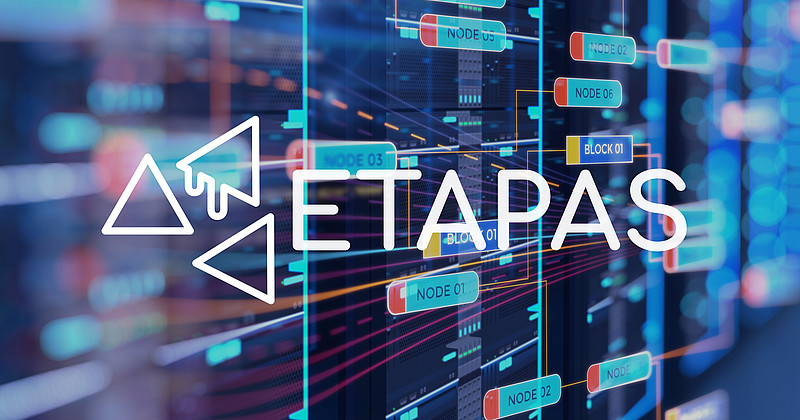On 25th of November 2021, the ETAPAS team at Uni Graz held an online dissemination workshop focusing on the legal aspects of disruptive technologies in the public administration sector. The workshop was separated in two distinct panels and featured renowned keynote speakers and panelists from different institutions. With over 70 active participants coming from various institutional and disciplinary backgrounds, the workshop enabled a broad discussion on the multi-faceted challenges and opportunities disruptive technologies can bring to the public administration sector.
The workshop started with an introduction to the ETAPAS project by project manager Roberta Lotti, Director of Office II at the Information Systems and Innovation Directorate of the Ministry of Economics and Finance, Italy. Her presentation, which gave an overview of the achievements made in the ETAPAS project so far and the tasks to come, was followed by an introduction by Annemarie Hofer, science manager and science communicator at the department of Iris Eisenberger, Institute for Public Law and Political Science, who gave an overview of the Legal Framework Analysis conducted at the University of Graz.
The Legal Framework Analysis focuses on the legal implications of utilizing disruptive technologies in the public administration sector. It highlights the relevant provisions on the level of primary law and secondary law, while also considering the non-binding EU Legal Framework. The Legal Framework Analysis will be publicly available via the ETAPAS website.
After the introduction, the first panel, focusing on “Disruptive Technologies & AI Regulation” started with the keynote titled “Artificial Intelligence does not exist! Defying the technology-neutrality narrative, in the regulation of civil liability for advanced technologies.” by Andrea Bertolini. Andrea Bertolini is assistant professor of Private Law at the Dirpolis Institute and adjunct professor in private law at the University of Pisa.
The second keynote was given by Paul Nemitz, Principal Advisor in the Directorate General for Justice and Consumers of the European Commission. His keynote was titled “Democracy, Rule of Law and Artificial Intelligence” and focused on the primacy of democracy over technology that is being signaled by the Commission’s proposal for a regulation of artificial intelligence.
The keynotes were followed by an engaged discussion with the invited panelists. The first panel featured Josef Baker-Brunnbauer, Entrepreneur at SocialTechLab.eu focusing on the “Trustworthy Artificial Intelligence Implementation - TAII Framework®”, Markus Fallenböck, Professor for Technology- and Innovation Law at the University of Graz and partner of the Fintech Own360, Daniel Tögl, Director at Parkside Interactive and responsible for the company’s consulting and AI services and Tatjana Evas, Legal and Policy Officer at the European Commission, DG CNECT and Associate Professor of EU and Comparative Law (on leave) at Tallinn University of Technology.
After a short coffee break, the workshop continued with the second panel, focusing on “Disruptive Technologies & Fundamental Rights”. The first keynote, titled “Which fundamental rights are particularly affected by AI and do we need new fundamental rights for the digital age?” was given by Karl Stöger, Professor of Medical Law at the Institute for Constitutional and Administrative Law at the University of Vienna. Karl Stöger raised the question whether fundamental rights in their current state are “overpowered” by disruptive technologies, which he negated in the end.
The second keynote was given by Elena Buoso, Associate Professor of Administrative Law at the School of Law in Padua. She focused on the “Disruptive Administration: The thin line between efficiency and legality”, reflecting on the role of the human factor in the administrative decision-making process, and on the assurance of public and individual interest.
Again, the two keynotes were followed by a very engaged discussion with the invited panelists Elisabeth Paar, University Assistant at the Institute for Constitutional and Administrative Law, Department of Medical Law, Severin Kacianka, researcher at the Department for Computer Science, Technical University of Munich, Viktoria H.S.E. Robertson, Professor of Commercial Law, Competition Law and Digitalization at the Vienna University of Economics and Business and Professor of International Antitrust Law at the University of Graz, and Giovanni Zaccaroni, Lecturer at the Department of European and Comparative Law of the University of Malta.
Further information on the keynote speakers and panelists, as well as abstracts and useful links can be found in the program.
The ETAPAS team at Uni Graz is led by Univ. Prof. Dr. Tina Ehrke Rabel and Univ Prof. Dr . Iris Eisenberger, M.Sc. (LSE) and consists of Mag. Sarah Domes Hohl, Johannes Frizberg, Dipl.‑Ing. Annemarie Hofer, Mag. Magdalena Nemeth, Tamara Rončević, Mag. Albert Steiner, Tess Upperton, LL.B.(Hons), B.A.
This project has received funding from the European Union’s Horizon 2020 research and innovation programme under grant agreement No 101004594.
Annemarie Hofer, 29.11.2021
